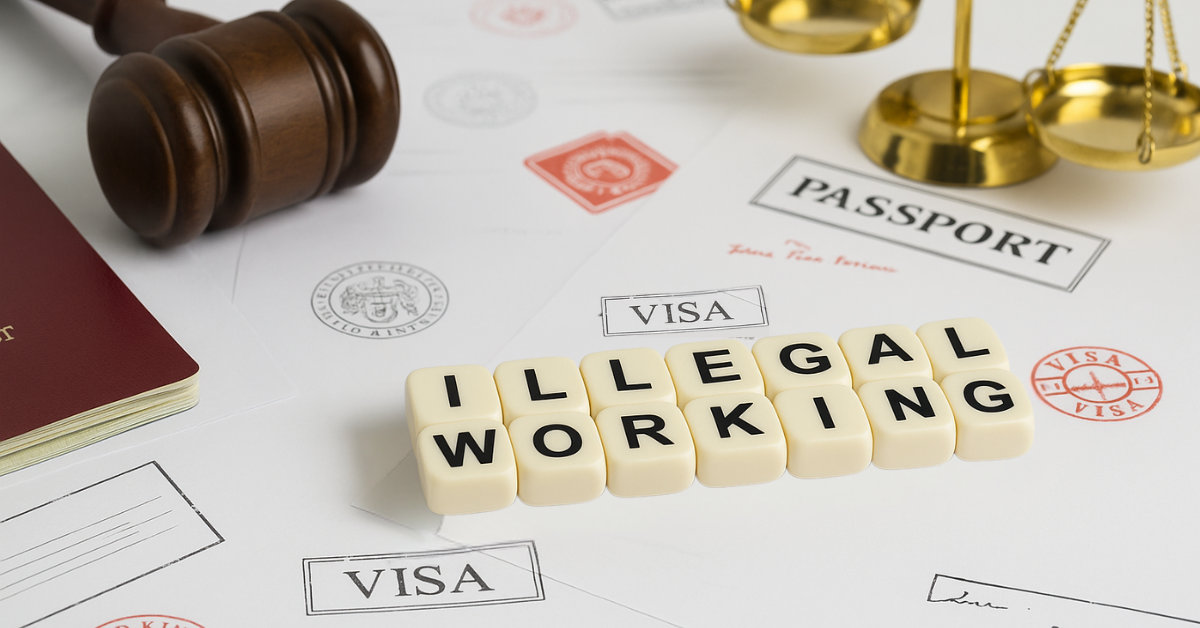
EU Settlement Scheme Continuous Residence
To qualify for settled status through the EU Settlement Scheme, you will be required to satisfy a 5 year continuous residence period.

Elliott Dipper
What is the EU Settlement Scheme?
The EU Settlement Scheme, also known as the EUSS, is a program implemented by the UK government that allows EU, EEA and Swiss citizens living in the UK to apply to continue living and working in the UK after Brexit. The EUSS was introduced in 2019 as a consequence of the Brexit Referendum which saw the UK voting to leave the European Union (EU).
Who can apply for the EUSS?
The EUSS is closed for new applications, however, if you are from the EU, Switzerland, Norway, Iceland or Liechtenstein then you and your family members may be able to make a late application to continue to live in the UK post-Brexit. Additionally, if you have pre-settled status and have since become eligible for settled status, then you may be able to make an application.
Settled and pre-settled status
If you make a successful application to the EU Settlement Scheme, then you will either get pre-settled or settled status. If you are granted settled status, then you will be entitled to remain in the UK indefinitely. Whereas if you are granted pre-settled status, then you will have permission to stay in the UK for five years which will enable you to build up the 5 years continuous period of residence in the UK required to be eligible for settled status.
Once you have accrued your ‘continuous residence’ in the UK then you will be able to apply to switch to settled status as soon as you are eligible. You do not need to wait until your pre-settled status expires to apply for settled status.
What does continuous residence mean?
Continuous residence refers to the time you have spent in the UK without breaks.
To meet the 5-year continuous residence requirement for the EU Settlement Scheme, you must have been in the UK, the Channel Islands, or the Isle of Man for at least 6 months in any 12-month period for 5 years in a row. The 5 years is counted from the day you start your continuous residence and not the day you were granted pre-settled status.
How do you break continuous residence?
You may break your continuous residence in the UK if you spend more than 6-months outside of the UK in any 12-month period during the five years you are relying on. If you are deemed to have broken your continuous residence then you may not be eligible for settled status.
Will absence from the UK impact my EUSS application?
There are some absences of more than 6-months in a 12-month period that won’t count as a break in your continuous residence. These absences can include:
-
One period of up to 12 months for an important reason - for example, childbirth, serious illness, study, vocational training, an overseas work posting or because of coronavirus (COVID-19);
-
Compulsory military service of any length;
-
Time you spent abroad as a Crown servant, or as the family member of a Crown servant;
-
Time you spent abroad in the armed forces, or as the family member of someone in the armed forces;
-
Working in the UK marine area.
Coronavirus and continuous residence in the UK
If you have been absent from the UK for an ‘important reason’ and the implications of coronavirus and your absence has exceeded 12-months because coronavirus meant that you were prevented from, or advised against, returning to the UK earlier, then you will have exceed the permitted absence under Appendix EU. However, in these circumstances you may still be able to apply to the EUSS if you can prove that you couldn’t travel back to the UK within 12-months because of coronavirus or COVID-related guidance. Examples of this can include:
-
Where you were ill with COVID;
-
Where you were in quarantine, self-isolating or shielding in accordance with local public health guidance on coronavirus;
-
Where you were caring for a family member affected by coronavirus;
-
Where you were prevented from returning earlier to the UK due to travel disruption caused by coronavirus;
-
Where you were advised by your university or employer not to return to the UK, and to continue studying or working remotely from your home country, due to coronavirus.
Therefore, if your absence of 12-months or more was due to an ‘important reason’ and due to the implications of COVID-19 then you will not be considered as having broken your continuous qualifying period of residence. However, this absence will need to be proved.
Speak to an immigration lawyer about the EU Settlement Scheme
If you require further information about the EU Settlement Scheme or need help switching from pre-settled to settled status, do not hesitate to contact us and speak with one of our expert immigration lawyers. We are here to provide you with the guidance and support you need to navigate the application process and secure your future in the UK.
* Our free consultation last up to 15 minutes and are intended to provide an initial assessment of your enquiry and determine how we can assist. Where appropriate, we may also respond to your enquiry by email. However, if your enquiry is complex or requires detailed advice, we may recommend a paid initial consultation for a more in-depth discussion or case review. A consultation fee may apply for complex cases.
How to prove that a break in continuous residence was due to COVID-19
If you have been absent from the UK due to COVID-19, or another important reason, then you will be required to provide evidence of this (in addition to the other evidence required for an EUSS application). You will be required to provide evidence of the length of, and reason for, any absence relating to coronavirus that you wish to rely on. Examples of acceptable evidence include (but are not limited to):
-
Used travel tickets confirming the dates you left the UK and returned;
-
Confirmation of flight cancellations detailing the dates and times;
-
A doctor’s letter confirming you contracted coronavirus;
-
A doctor’s letter confirming you were identified as vulnerable and advised to shield;
-
An email or letter confirming you, or a person you were living with, received a positive coronavirus test result;
-
An official letter confirming you were in coronavirus quarantine;
-
A doctor’s letter confirming your family member, who you have been caring for, contracted coronavirus or was identified as vulnerable and advised to shield;
-
An email or letter confirming your family member, who you have been caring for, received a positive coronavirus test result;
-
A letter from a university advising you that, due to coronavirus, your course was moved to remote learning and you were advised or allowed to return to your home country to study remotely;
-
A letter from a university or employer advising you not to return to the UK, and to continue studying or working remotely from your home country, due to coronavirus;
-
A letter or other evidence from you accounting for your absence for another reason relating to coronavirus, for example, you left or remained outside the UK because there were fewer coronavirus restrictions elsewhere; you preferred to work or run a business from home overseas; or you would have been unemployed in the UK and preferred to rely on support from family or friends overseas.
If you are absent from the UK for more than 12 months then this will not be counted towards your continuous qualifying period or residence under the EU Settlement Scheme. In these cases your continuous qualifying period will be paused and will resume when you return to the UK. If you hold pre-settled status and this is set to expire before you can complete the 5 years continuous residence requirement for settled status then you will be able to apply for a further grant of pre-settled status to allow you to accrue the required ‘continuous’ qualifying period.
How do you prove continuous residence in the UK?
When you apply for the EU Settlement Scheme, you will be required to provide evidence to prove that you meet the continuous residence requirement. The Home Office has published a list of ‘acceptable’ pieces of evidence which can be used to demonstrate your continuous residence in the UK.
Evidence which covers a longer period of time:
-
Annual bank statement or account summary, showing 6 months of payments received or spending in the UK in a 12-month period;
-
A dated and signed employer letter confirming the duration of a period of UK based employment undertaken and evidence that the employer is genuine, for example, their Companies House number;
-
A dated and addressed council tax bill;
-
A letter or certificate from your school, college, university or other accredited educational or training organisation showing the dates you enrolled, attended and completed your course;
-
An invoice for fees from your school, college, university or other accredited educational or training organisation and evidence of payment;
-
A document showing a UK address from a student finance body in England, Wales, Scotland or Northern Ireland or from the Student Loans Company;
-
A residential mortgage statement or rental agreement and evidence of payment;
-
A dated and signed letter from a registered care home confirming your residence there;
-
Employer pension contributions;
-
Annual business account of a self-employed person;
-
A P60 for a 12-month period – your P60 shows the tax you’ve paid on your salary in the tax year (6 April to 5 April). We may ask you for additional evidence to confirm that you were resident here for at least 6 months of that period;
-
A P45 showing the length of your previous employment. You should get a P45 from your employer when you stop working for them.
Evidence which covers a shorter period of time:
These documents count as evidence for one month if they have a single date on them. They can be used to cover a longer period of time if they have a start and end date covering longer than a month.
-
A bank statement showing payments received or spending in the UK;
-
A payslip for a UK-based job;
-
A water, gas or electricity bill showing a UK address;
-
A landline or mobile telephone, TV or internet bill showing a UK address;
-
A domestic bill, such as for home repairs, vet’s services or insurance, and evidence of payment;
-
A card or letter from your GP, hospital, or other healthcare professional confirming appointments you have made or attended;
-
A letter from a government department, public service or charity that show you dealt with them on a particular date or for a particular period (for example Job Centre Plus or Citizens Advice);
-
A passport stamp confirming entry at the UK border;
-
A used travel ticket confirming you entered the UK from another country;
-
An invoice for work you have done in the UK and evidence of payment.
When proving your continuous residence in the UK for the EUSS, it is best to provide evidence which covers a longer period of time.
How Paragon Law can help?
Since the introduction of the EU Settlement Scheme, our immigration lawyers have been dedicated to assisting EU nationals and their families to apply to the EUSS. In addition to this, our immigration lawyers have supported businesses and universities to ensure that their EU employees have made timely applications to the scheme. As a result, our immigration lawyers have developed extensive expertise in EUSS applications, making us a reliable law firm for anyone seeking assistance with the scheme.
Subscribe for updates

Here For Good, Free Immigration Advice
Not ready to talk? Our free immigration resources may have the answer to your questions
%20Visa%20Update%20New%20Route%20for%20Adult%20Children.png)
Hong Kong BN(O) Visa Update: New Route for Adult Children
%20(1).png)
British Citizenship Application: Requirements & Process (2026)
.png)
A Fairer Pathway to Settlement: UK Earned Settlement Explained

UK ETA Enforcement from 25 February 2026: What Travellers Need to Know

Global Talent Visa: Eligibility, Requirements and Application Process

Border Security, Asylum and Immigration Act 2025 – What Employers Need to Know
.png)
UK Immigration Rule Changes 2025: Visa and Settlement Reforms Explained
%20What%20Sponsors%20Need%20to%20Know%20(1).png)
Upcoming Increase to the Immigration Skills Charge (ISC): What Sponsors Need to Know




